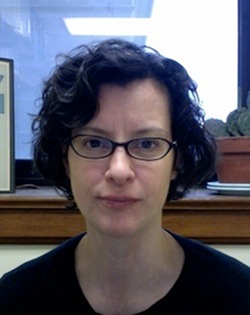Dorothea Browder
 Dorothea Browder
Dorothea Browder
Associate Professor
Ph.D., University of Wisconsin, 2008
Fields: U.S. Women, Labor
Office: Cherry Hall 237
Phone: (270) 745-5725
Email: dorothea.browder@wku.edu
Research Interests
I focus on U.S. women's history and gender history, and am especially interested in the history of working-class women, the intersection of religion and working-class activism, race relations, and the social construction of race. I am currently researching the history of the Young Women's Christian Association's Industrial Program, which ran from 1904 through the 1940s. I explore how YWCA industrial club participants reformed the middle-class women who sought to reform them, and how they forged a nation-wide movement of working women across differences such as race, religion, nation of origin, occupation, and unionized status. My recent publication, "'A 'Christian Solution of the Labor Situation': How Working Women Reshaped the YWCA's Religious Mission and Politics" (Journal of Women's History 19:2, 2007), examines how working-class YWCA members persuaded the Association to endorse a platform of labor rights at the height of the 1919-1920 Red Scare. I am also working on a document project for SUNY Binghamton's Women and Social Movements website, drawing on the YWCA Industrial Program materials.
Teaching Interests
I regularly teach courses on U.S. women's history and the U.S. history survey, as well as the second half of the Western Civ survey. In Spring 2008 I am teaching a Special Topics (490) course that explores changes in the role that work has played in women's lives in the United States. Women have always worked, but the conditions and meanings of labor--and workers' relationship to their work--has changed for both men and women wage-earners, as has the experience and image of unpaid household labor. This course will explore the various changes as they directly affected American women economically, socially, and politically and will open up discussions of the impact of race and class as well as gender.
I may also periodically teach the history of sexuality class, as well as special topics
courses in labor history, the social construction of race, and the history of religion
and working-class activism.
Some of the links on this page may require additional software to view.

